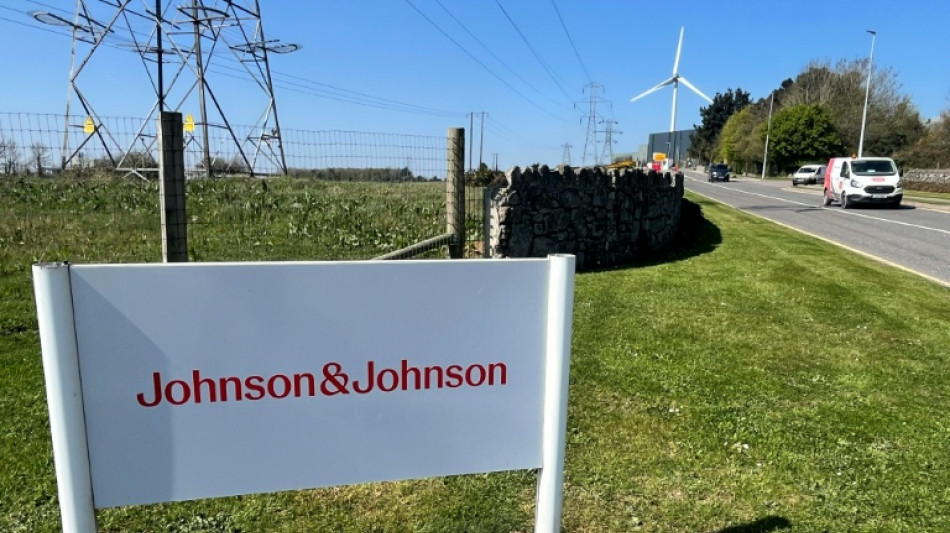
-
 Ruud keeps Barcelona Open defence on course
Ruud keeps Barcelona Open defence on course
-
Trump tariffs could put US Fed in a bind, Powell warns

-
 CONCACAF chief rejects 64-team World Cup plan for 2030
CONCACAF chief rejects 64-team World Cup plan for 2030
-
Putin praises Musk, compares him to Soviet space hero
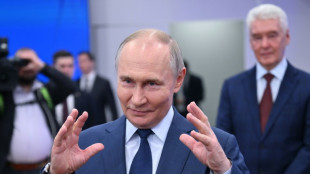
-
 Son to miss Spurs' Europa League trip to Frankfurt
Son to miss Spurs' Europa League trip to Frankfurt
-
US senator in El Salvador seeking release of wrongly deported migrant

-
 Trump tariffs could put the US Fed in a bind, Powell warns
Trump tariffs could put the US Fed in a bind, Powell warns
-
US judge says 'probable cause' to hold Trump admin in contempt

-
 India opposition slams graft charges against Gandhis
India opposition slams graft charges against Gandhis
-
Nate Bargatze to host Emmys: organizers

-
 US Fed Chair warns of 'tension' between employment, inflation goals
US Fed Chair warns of 'tension' between employment, inflation goals
-
Trump touts trade talks, China calls out tariff 'blackmail'

-
 US judge says 'probable cause' to hold govt in contempt over deportations
US judge says 'probable cause' to hold govt in contempt over deportations
-
US eliminates unit countering foreign disinformation

-
 Germany sees 'worrying' record dry spell in early 2025
Germany sees 'worrying' record dry spell in early 2025
-
Israel says 30 percent of Gaza turned into buffer zone

-
 TikTok tests letting users add informative 'Footnotes'
TikTok tests letting users add informative 'Footnotes'
-
Global uncertainty will 'certainly' hit growth: World Bank president

-
 EU lists seven 'safe' countries of origin, tightening asylum rules
EU lists seven 'safe' countries of origin, tightening asylum rules
-
Chelsea fans must 'trust' the process despite blip, says Maresca

-
 Rebel rival government in Sudan 'not the answer': UK
Rebel rival government in Sudan 'not the answer': UK
-
Prague zoo breeds near-extinct Brazilian mergansers

-
 Macron to meet Rubio, Witkoff amid transatlantic tensions
Macron to meet Rubio, Witkoff amid transatlantic tensions
-
WTO chief says 'very concerned' as tariffs cut into global trade

-
 Sports bodies have 'no excuses' on trans rules after court ruling: campaigners
Sports bodies have 'no excuses' on trans rules after court ruling: campaigners
-
Zverev joins Shelton in Munich ATP quarters
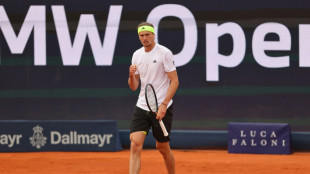
-
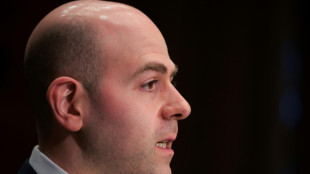 The Trump adviser who wants to rewrite the global financial system
The Trump adviser who wants to rewrite the global financial system
-
US senator travels to El Salvador over wrongly deported migrant

-
 UN watchdog chief says Iran 'not far' from nuclear bomb
UN watchdog chief says Iran 'not far' from nuclear bomb
-
Trump says 'joke' Harvard should be stripped of funds

-
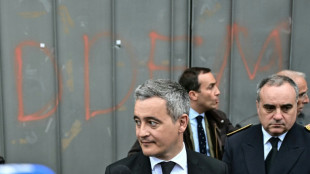 Macron vows punishment for French prison attackers
Macron vows punishment for French prison attackers
-
Canada central bank holds interest rate steady amid tariffs chaos
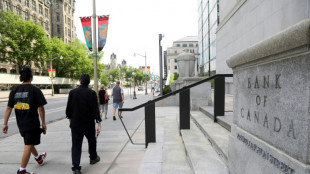
-
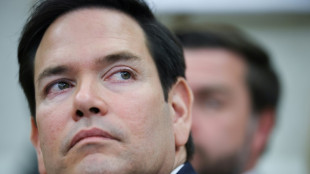 Rubio headed to Paris for Ukraine war talks
Rubio headed to Paris for Ukraine war talks
-
Australian PM vows not to bow to Trump on national interest
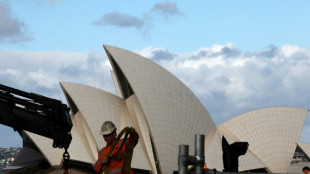
-
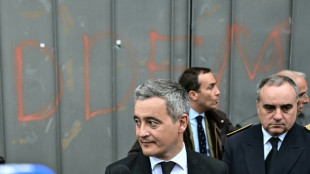 New attacks target France prison guard cars, home
New attacks target France prison guard cars, home
-
Global trade uncertainty could have 'severe negative consequences': WTO chief
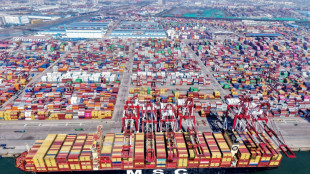
-
 Google facing £5 bn UK lawsuit over ad searches: firms
Google facing £5 bn UK lawsuit over ad searches: firms
-
Onana to return in goal for Man Utd against Lyon: Amorim

-
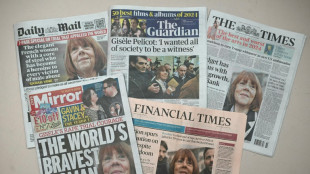 Tiktok bans user behind Gisele Pelicot 'starter kit' meme
Tiktok bans user behind Gisele Pelicot 'starter kit' meme
-
'Put it on': Dutch drive for bike helmets
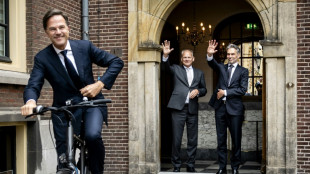
-
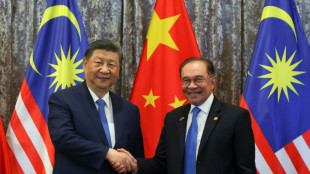 China's Xi meets Malaysian leaders, vows to 'safeguard' Asia allies
China's Xi meets Malaysian leaders, vows to 'safeguard' Asia allies
-
France urges release of jailed Russian journalists who covered Navalny

-
 Gabon striker Boupendza dies after 11th floor fall
Gabon striker Boupendza dies after 11th floor fall
-
UK top court rules definition of 'woman' based on sex at birth

-
 PSG keep Champions League bid alive, despite old ghosts reappearing
PSG keep Champions League bid alive, despite old ghosts reappearing
-
Stocks retreat as US hits Nvidia chip export to China
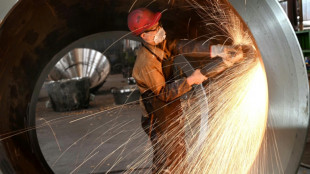
-
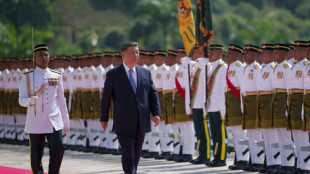 China's Xi meets Malaysian leaders in diplomatic charm offensive
China's Xi meets Malaysian leaders in diplomatic charm offensive
-
Israel says no humanitarian aid will enter Gaza

-
 Anxiety clouds Easter for West Bank Christians
Anxiety clouds Easter for West Bank Christians
-
Pocket watch found on Titanic victim to go on sale in UK
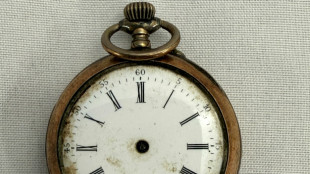

Trump tariffs unnerve locals in Irish 'pharma' hub
Vast pharmaceutical factories pepper the green landscape in southern Ireland, but the wind turbines next to the plants outside Cork are in the eye of Donald Trump's global trade storm.
The area around the village of Ringaskiddy and its port in Cork harbour has emerged in recent decades as a base for US pharma giants where products such as Pfizer's Viagra pills are made and shipped off to the United States and worldwide.
Pharmaceuticals are now the motor of Ireland's economy, accounting for around 100 billion euros ($114 billion) in 2024, almost half of all Irish exports, and up around 30 percent from the previous year.
The sector also provides an estimated 20,000 well-paid jobs in County Cork, most of them around Ringaskiddy and the neighbouring commuter town of Carrigaline, and flushes a corporate tax bounty into the Irish exchequer.
But local people are sweating that the good times could end as Ireland has found itself in the crosshairs of the US president's tariff war.
Trump has warned repeatedly that pharmaceuticals are in his sights and that special tariffs for the sector are imminent.
Drug manufacturing "is in other countries, largely made in China, a lot of it made in Ireland... Ireland was very smart. We love Ireland. but we're going to have that," he said last month.
This week, Trump trained his eye on China and announced a 90-day tariff pause for the rest of the world, just hours after he said the pharma companies are "going to come back" to the United States due to tariffs, fuelling panicked uncertainty about the future in Cork.
"There's a lot of stress out there," Audrey Buckley, a councillor in Ringaskiddy, told AFP overlooking a construction site where a new motorway will connect the factories to the port.
"Parents are saying to me, 'Oh my God, should my daughter buy her first home, she's in the process of going through a mortgage. Will she have a job in a year's time?'"
Buckley remembers "the excitement" when Pfizer first appeared in the 1970s, kickstarting the area's development.
She finished school in the 1980s, a decade marked by economic depression and high unemployment in Ireland, when many young people were forced to emigrate to find work.
"Now many of us are thinking like, will our own children have to emigrate again?" she said.
- 'Doom and gloom' -
At Ringaskiddy's village bar "The Ferry Boat Inn" -- dubbed by locals "the FBI" -- daily chatter among customers gravitates toward Trump's latest manoeuvres, according to bartender Kelly Davis.
"If everything was to be uprooted and brought back to America it would send shockwaves through the village," the 39-year-old told AFP between pulling pints of Cork's locally made Murphy's stout.
On her way home after work, Shirin Banjwani, an analytics developer at one of the US-owned plants, admitted to AFP near Ringaskiddy port that she was "worried" about losing her job.
But the 29-year-old, originally from India, who works for Thermo Fisher Scientific, said the size of the plants means it would "take like five to six years" for them to shift to the United States if it happens.
"If Trump is planning to do that, it will take a lot of time," she said.
Six kilometres (3.7 miles) up the road, the population of Carrigaline has soared in line with employment growth at the factories over the decades.
New residential developments have mushroomed around the town, its population doubling to 20,000 in two decades, up from 1,000 in the early 1970s.
"This town used to be a village. Once the pharmaceuticals came, it changed everything. It has boomed," said Betty O'Riordan, a "Tidy Towns" group volunteer painting a park bench.
"A trade war will affect everybody, all those people with mortgages and high-purchase cars, where are they going to go?" the 70-year-old retired civil servant told AFP.
The owner of a swanky restaurant on Carrigaline's main street declined to comment, saying only that "there's too much doom and gloom already, no need for me to add more".
In Cork city's UCC university, Seamus Coffey, an economics lecturer, cautioned against doom-mongering.
"I think those factories are here for the time being. They'll see out their life cycle in Ireland," Coffey told AFP in the university's quadrangle.
"If tariffs were to become a permanent feature of global trade, and if there are changes, we'll see it further down the line with pipeline decisions about next investments," he said.
F.Wagner--VB
